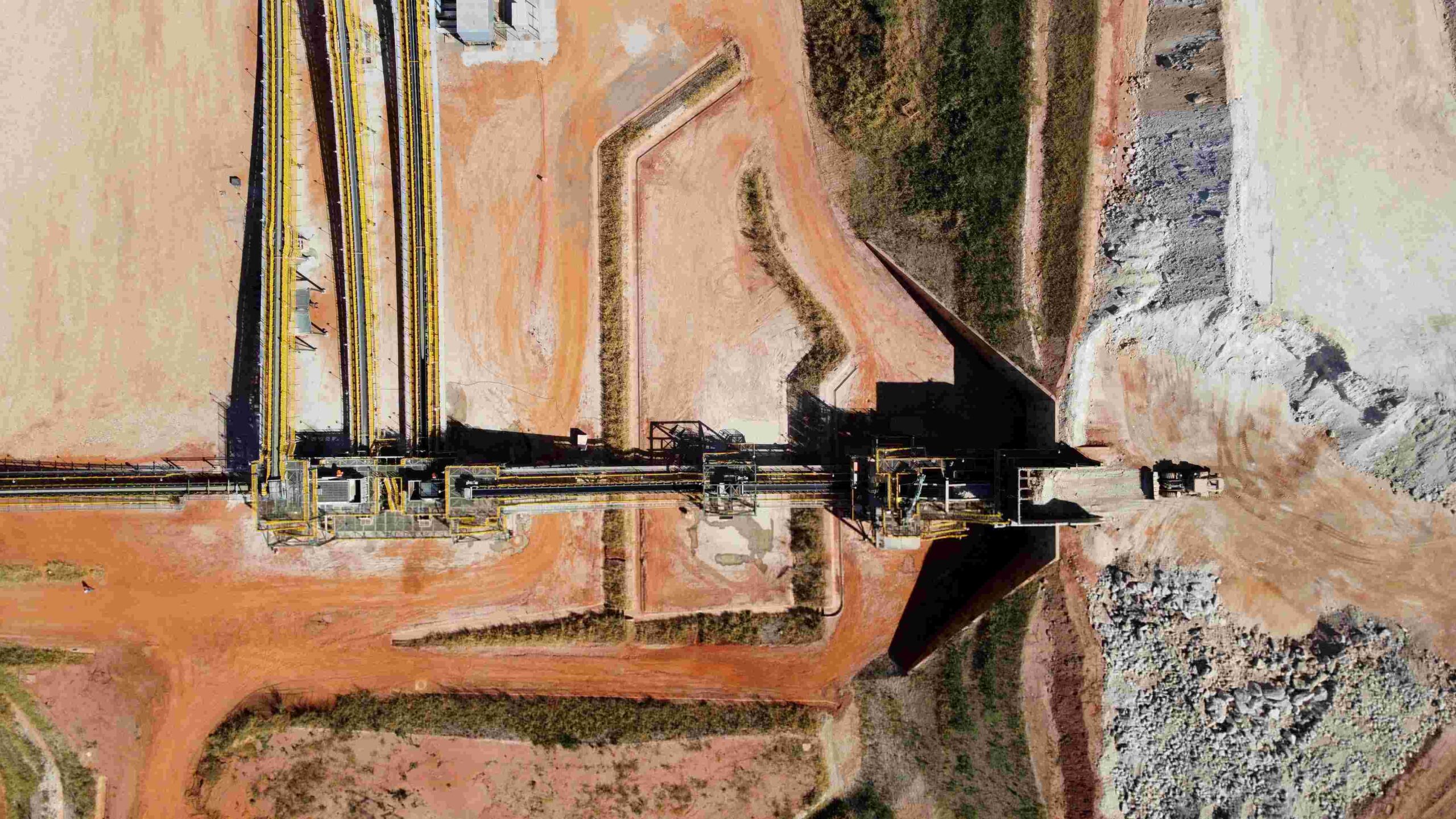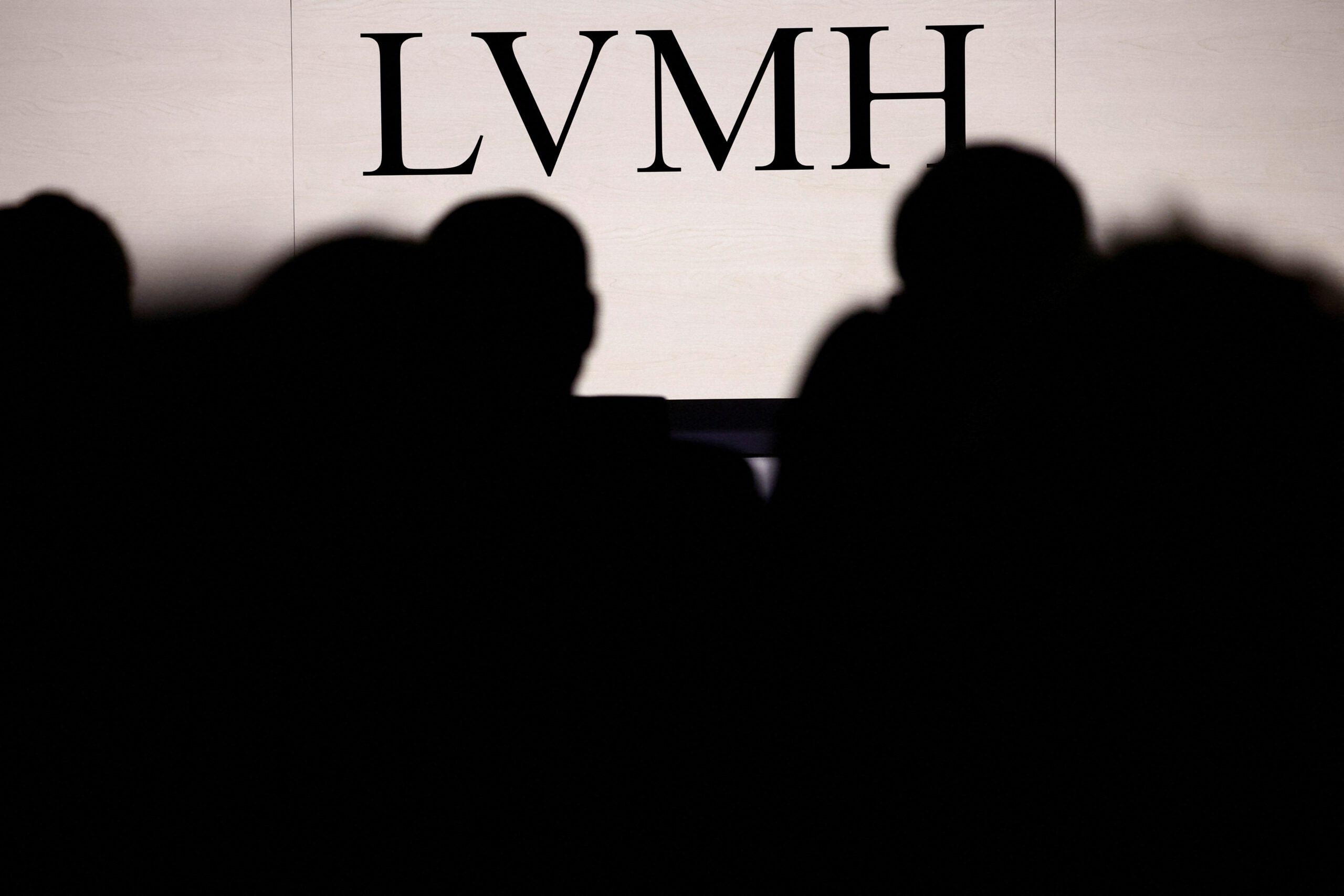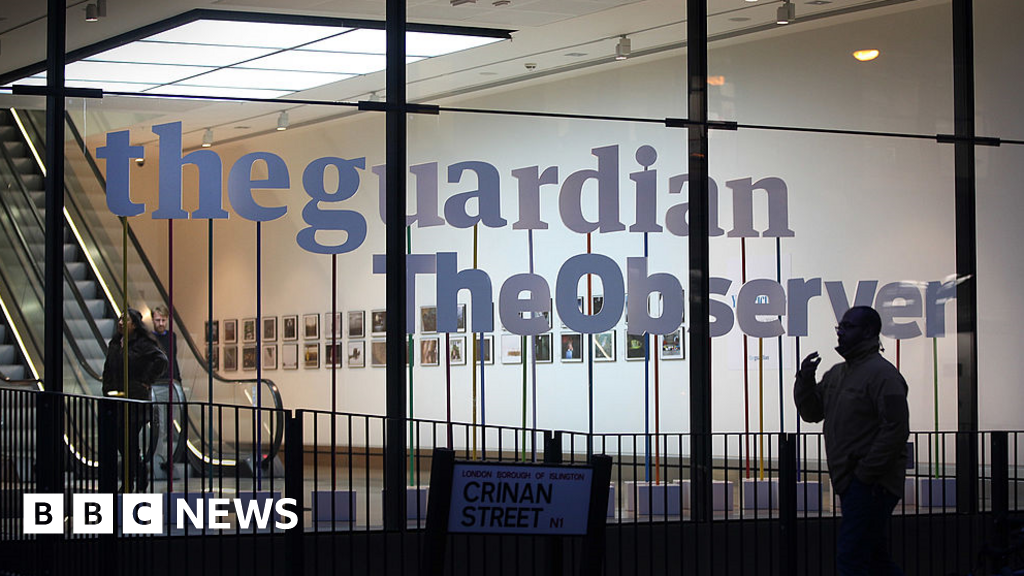Reuters exclusively reported that German engineering group Robert Bosch is weighing a bid for U.S. appliances manufacturer Whirlpool, a move that would boost its position in the household appliances market.
Business
US to ban Chinese tech in cars

The US is planning to ban certain hardware and software made in China and Russia from cars, trucks and buses in the US due to security risks.
Officials said they were worried that the technology in question, used for autonomous driving and to connect cars to other networks, could allow enemies to “remotely manipulate cars on American roads”.
There is currently minimal use of Chinese or Russia-made software in American cars.
But Commerce Secretary Gina Raimondo said the plans were “targeted, proactive” steps to protect the US.
“Cars today have cameras, microphones, GPS tracking, and other technologies connected to the internet,” she said in a statement.
“It doesn’t take much imagination to understand how a foreign adversary with access to this information could pose a serious risk to both our national security and the privacy of US citizens.”
Chinese officials said the US was broadening “the concept of national security” to unfairly target Chinese firms.
“China opposes the US’s broadening of the concept of national security and the discriminatory actions taken against Chinese companies and products,” said Lin Jian, spokesman for China’s Foreign Ministry, in a statement.
“We urge the US side to respect market principles and provide an open, fair, transparent, and non-discriminatory business environment for Chinese enterprises.”
The proposal, which will now enter a comment period, is the latest from the White House aiming to limit China’s presence in the car manufacturing supply chain.
The White House has also raised tariffs on electric cars, batteries for electric vehicle and a range of other items. It has separately banned the import of Chinese-made cargo cranes, warning of cyber-security risk.
The US launched an investigation in February examining the cyber risks from so-called connected cars.
The prohibitions on software would go into effect with model year 2027, while the hardware rules would be effective three years later, giving the industry more time to re-work their supply chains.
John Bozzella, president and chief executive of Alliance for Automotive Innovation, which represents big car companies, said that though there was “very little technology – hardware or software in today’s connected vehicle supply chain that enters the US from China” the rule would force some firms to find new suppliers.
“I’ve said this in other contexts, but it applies here too: you can’t just flip a switch and change the world’s most complex supply chain overnight,” he said.
“The lead time included in the proposed rule will allow some auto manufacturers to make the required transition but may be too short for others,” he said.
He said association would continue to share its perspective as the final rules are developed.
Business
Bosch weighs offer for appliance maker Whirlpool

Business & FinanceDeals
26 June 2024, 6:14 pm 1 minute
Market Impact
Whirlpool’s shares rose 12.7% in early trading after the Reuters report.
Article Tags
Topics of Interest: Business & FinanceDeals
Type: Reuters Best
Sectors: Business & FinanceMergers & Acquisition
Regions: AmericasEurope
Win Types: Exclusivity
Story Types: Exclusive / Scoop
Media Types: Text
Customer Impact: Important Regional Story
Business
Israeli strikes kill more than 270 in Lebanon, says health ministry
Unlock the Editor’s Digest for free
Roula Khalaf, Editor of the FT, selects her favourite stories in this weekly newsletter.
Israel launched a relentless wave of air strikes against what it said were Hizbollah targets on Monday, killing almost 300 people in Lebanon’s deadliest day for decades and pushing the region closer to all-out war.
Israeli warplanes struck hundreds of targets across the country, including Beirut’s southern suburbs, as Benjamin Netanyahu’s government ramped up its assault on Hizbollah in a “new phase” to the war.
The bombardment heightened concerns about full-scale hostilities in the Middle East and spread panic across Lebanon, sending tens of thousands fleeing targeted areas.
Monday’s death toll was the highest since Israel launched a ground offensive against Hizbollah in 2006, and came despite the US warning Israel not to escalate its military campaign against the Iranian-backed militant group.
Israel’s army said it had hit some 800 Hizbollah targets and would continue to strike buildings where it believed the militant group was storing weapons, warning civilians to evacuate.
“We are not waiting for the threat, we are pre-empting it,” Netanyahu said in a video statement, as the Israeli premier warned of “complex days” ahead.
“We are eliminating senior figures, terrorists and missiles . . . I promised that we would change the security balance, the balance of power in the north — that is exactly what we are doing.”
The Israeli cabinet late on Monday approved a “special [emergency] situation” across the country that allows the military more latitude to restrict civilian life and activities due to the war in anticipation of a fierce Hizbollah response.
Lebanon’s health ministry said 39 women and 21 children were among the almost 300 dead, with at least 1,024 people injured. Roads in southern Lebanon were packed with cars as civilians fled north towards Beirut and schools across the country were turned into emergency shelters for the displaced.

Israel issued several warnings throughout the course of the day, urging civilians to leave any buildings where Hizbollah stored weapons, first in southern Lebanon and then in the Bekaa Valley in the country’s east. Both are areas where Hizbollah has long had a major presence.
Beirut residents told the Financial Times they received warning calls on their landlines from the Israeli military ordering inhabitants of villages in targeted areas to leave.
In its statements, the Israel Defense Forces said people had two hours to leave any potential targets and advised them to move at least 1km away.
In response to the IDF strikes, Hizbollah said it had fired dozens of missiles at multiple targets in northern Israel including a site owned by the Rafael defence company north of Haifa. It stressed the attacks “in defence of Lebanon and its people” were focused on military targets.
Sirens sounded multiple times in northern Israel throughout the day. But fewer rockets hit population centres in Israel than on Sunday, when the militant group hit the suburbs of Haifa.
One strike on Monday hit a private home in the village of Givat Avni in the Galilee, Israeli media reported. Rockets were also intercepted over the occupied West Bank, a regional council for Israeli settlements in the area said.
Israeli defence minister Yoav Gallant told citizens to prepare for a more intense response. “We are deepening our attacks in Lebanon, the sequence of operations continues,” he said. “Ahead of us are days when the public will have to show composure, discipline.”
The escalation has stoked fears that a full-blown land war could be imminent.
Asked about the possibility of a land incursion into southern Lebanon, Rear Admiral Daniel Hagari, an Israeli military spokesman, said the country would continue to “do whatever is needed” to prevent Hizbollah from being able to strike northern Israel and to allow local residents to return to their homes.
Iran’s president Masoud Pezeshkian said that Israel was seeking to “trap” his country in a wider war. “They are dragging us to a point where we do not wish to go,” he told reporters on Monday.
Ziad al-Makary, Lebanon’s information minister, said on social media that a large number of residents in Beirut and other areas received “random” phone messages via their landlines telling them to evacuate their locations.
His office in Beirut received one of the calls, which he said were part of Israel’s policy of “psychological warfare”, adding that “work at the Ministry of Information continues as usual”.
The strikes prompted chaotic scenes across the country. Videos in Lebanese media showed explosions rocking villages in the Bekaa Valley, and paramedics and residents picking their way through rubble following an air strike. Schools closed across Lebanon’s southern and Bekaa regions as well as Beirut’s southern suburbs.
The health ministry asked all hospitals in the country’s south and east to halt non-urgent surgeries to make room for those injured in the Israeli strikes. Hospitals in the north of Israel also began relocating operations further south away from the fighting.
Lebanese Prime Minister Najib Mikati said during a cabinet meeting that the Israeli attacks were a “war of extermination”. Citing UN secretary-general António Guterres, who warned on Sunday that southern Lebanon could turn into “another Gaza”, Mikati called on the international community “to pressure Israel to end its aggression”.
The hostilities follow the mass detonations of Hizbollah’s communications devices that killed 37 people and injured more than 3,000 across Lebanon, and which the militant group blamed on Israel. Israel has not directly confirmed or denied responsibility.
Business
Sigma Lithium COO steps down in new leadership shakeup, shares dive

Energy
05 October 2023, 4:56 pm 1 minute
Reuters reported exclusively on Thursday that Sigma Lithium’s chief operating officer left the company last month, sending shares of the miner 7% lower amid its latest leadership shakeup. Sigma on Friday confirmed the executive’s departure. The story followed an exclusive report the week before on a mining rights dispute involving the husband-and-wife pair who ran the company together until earlier this year.
Market Impact
Sigma Lithium (SGML.V) Chief Operating Officer Brian Talbot left the company at the end of last month, he told Reuters on Thursday, sending shares of the Vancouver-based miner tumbling.
Article Tags
Topics of Interest: Energy
Type: Reuters Best
Sectors: Commodities & Energy
Regions: North America
Countries: Canada
Win Types: Exclusivity
Story Types: Exclusive / Scoop
Media Types: Text
Customer Impact: Important Regional Story
Business
Japan, Tokyo governments target $4.7 bln valuation for Tokyo Metro in IPO

Business & FinanceEconomy
19 August 2024, 8:25 pm 1 minute
Reuters exclusively reported that Japan’s national and Tokyo governments are seeking a 700 billion yen ($4.7 billion) valuation for Tokyo Metro as they prepare to list the subway operator as early as October-end, in what would be the nation’s biggest IPO in roughly six years. The two governments, which own 100% of Tokyo Metro, plan to arrange a meeting of brokerages within a week for a briefing on the IPO and expect to receive approval for the listing from the Tokyo Stock Exchange as soon as mid-September, the sources said.
Market Impact
With half the company to be sold, the initial public offering could raise 350 billion yen at that valuation, which would exceed the size of Kokusai Electric’s IPO last year and become the largest since SoftBank Group listed its wireless unit in 2018.
Article Tags
Topics of Interest: Business & FinanceEconomy
Type: Reuters Best
Sectors: Business & FinanceEconomy & Policy
Regions: Asia
Countries: Japan
Win Types: Exclusivity
Story Types: Exclusive / Scoop
Media Types: Text
Customer Impact: Significant National Story
Money
IPAW 2024 kicks off with IP seminar for advisers


Income Protection Awareness Week (IPAW 2024) kicked off today (23 September) with a seminar for advisers exploring the current income protection (IP) market.
The awareness week is being organised by the Income Protection Task Force (IPTF) to raise the profile and grow sales of IP products.
The week will comprise a series of online keynotes, panel debates, case studies and presentations and will tackle various themes across income protection.
Today’s session looked at the case for income protection and what advisers are seeing in the market and in client conversations.
It also looked at how advisers include IP in their advice process and the impact that consumer duty has had on adviser behaviour.
Jo Miller, co-chair, IPTF, said the IP market has seen a rise in sales, with a record number of sales on advice.
However, she urged the sector to keep up the momentum as more work needed to be done.
The adviser panel – consisiting of Mike Douglas, protection specialist, Woodside Financial Services, Nina Brown, protection specialist at Pam Brown Mortgages, and Hannah Murray, financial adviser, St. James’s Place Protection Planning – expressed similar sentiments.
For his part, Douglas urged advisers to make the IP advice process simple by explaining the benefits and pitfalls of not having IP cover.
Meanwhile, research from protection and employee benefits provider MetLife UK has found that while one in five (20%) consumers see the benefit of financial protection, 12% don’t understand the difference between the various offerings.
The study, published today, found one in ten (9%) customers admitted they only thought about financial protection once it was too late and they needed to claim.
MetLife said IPAW provides the chance for advisers to talk to clients and review what protection they do and don’t have in place.
Business
Some investors demand change at LVMH after probe into Dior contractors

Business & Finance
23 July 2024, 9:11 am 1 minute
Reuters exclusively reported that Europe’s top asset manager Amundi and other LVMH investors want the $370 billion luxury behemoth to take more aggressive steps to monitor its suppliers’ treatment of workers after Italian prosecutors disclosed alleged sweatshop-like conditions at subcontractors for high-end brand Dior.
Market Impact
The investigation into suppliers for LVMH’s second-largest fashion label, which Reuters revealed on June 11, has shone a spotlight on potential worker exploitation in the $1.6 trillion global luxury goods industry.
Article Tags
Topics of Interest: Business & Finance
Type: Reuters Best
Sectors: Business & Finance
Regions: Europe
Win Types: Exclusivity
Story Types: Exclusive / Scoop
Media Types: Text
Customer Impact: Important Regional Story
-

 News5 days ago
News5 days agoYou’re a Hypocrite, And So Am I
-

 Sport4 days ago
Sport4 days agoJoshua vs Dubois: Chris Eubank Jr says ‘AJ’ could beat Tyson Fury and any other heavyweight in the world
-

 Science & Environment5 days ago
Science & Environment5 days agoHow to unsnarl a tangle of threads, according to physics
-

 Science & Environment4 days ago
Science & Environment4 days ago‘Running of the bulls’ festival crowds move like charged particles
-

 Technology5 days ago
Technology5 days agoWould-be reality TV contestants ‘not looking real’
-

 News1 day ago
News1 day agoOur millionaire neighbour blocks us from using public footpath & screams at us in street.. it’s like living in a WARZONE – WordupNews
-

 CryptoCurrency4 days ago
CryptoCurrency4 days agoEthereum is a 'contrarian bet' into 2025, says Bitwise exec
-

 CryptoCurrency4 days ago
CryptoCurrency4 days agoDZ Bank partners with Boerse Stuttgart for crypto trading
-

 Science & Environment5 days ago
Science & Environment5 days agoWhy this is a golden age for life to thrive across the universe
-

 Science & Environment4 days ago
Science & Environment4 days agoQuantum ‘supersolid’ matter stirred using magnets
-

 Science & Environment4 days ago
Science & Environment4 days agoSunlight-trapping device can generate temperatures over 1000°C
-

 Health & fitness5 days ago
Health & fitness5 days agoThe secret to a six pack – and how to keep your washboard abs in 2022
-

 Science & Environment5 days ago
Science & Environment5 days agoLiquid crystals could improve quantum communication devices
-

 CryptoCurrency4 days ago
CryptoCurrency4 days agoBitcoin miners steamrolled after electricity thefts, exchange ‘closure’ scam: Asia Express
-

 CryptoCurrency4 days ago
CryptoCurrency4 days agoDorsey’s ‘marketplace of algorithms’ could fix social media… so why hasn’t it?
-

 CryptoCurrency4 days ago
CryptoCurrency4 days agoLow users, sex predators kill Korean metaverses, 3AC sues Terra: Asia Express
-

 CryptoCurrency4 days ago
CryptoCurrency4 days agoBitcoin bulls target $64K BTC price hurdle as US stocks eye new record
-
Travel1 day ago
Where Retro Glamour Meets Modern Chic in Athens, Greece
-

 News4 days ago
News4 days agoIsrael strikes Lebanese targets as Hizbollah chief warns of ‘red lines’ crossed
-

 Science & Environment4 days ago
Science & Environment4 days agoHyperelastic gel is one of the stretchiest materials known to science
-

 Science & Environment5 days ago
Science & Environment5 days agoMaxwell’s demon charges quantum batteries inside of a quantum computer
-

 Science & Environment4 days ago
Science & Environment4 days agoQuantum forces used to automatically assemble tiny device
-

 News4 days ago
News4 days agoBrian Tyree Henry on voicing young Megatron, his love for villain roles
-

 Science & Environment5 days ago
Science & Environment5 days agoHow to wrap your mind around the real multiverse
-

 Science & Environment5 days ago
Science & Environment5 days agoPhysicists are grappling with their own reproducibility crisis
-

 Science & Environment4 days ago
Science & Environment4 days agoNuclear fusion experiment overcomes two key operating hurdles
-

 CryptoCurrency4 days ago
CryptoCurrency4 days agoCardano founder to meet Argentina president Javier Milei
-

 CryptoCurrency4 days ago
CryptoCurrency4 days agoRedStone integrates first oracle price feeds on TON blockchain
-

 CryptoCurrency4 days ago
CryptoCurrency4 days agoSEC asks court for four months to produce documents for Coinbase
-

 CryptoCurrency4 days ago
CryptoCurrency4 days agoVitalik tells Ethereum L2s ‘Stage 1 or GTFO’ — Who makes the cut?
-

 CryptoCurrency4 days ago
CryptoCurrency4 days agoBlockdaemon mulls 2026 IPO: Report
-

 Science & Environment1 day ago
Science & Environment1 day agoMeet the world's first female male model | 7.30
-

 Sport4 days ago
Sport4 days agoUFC Edmonton fight card revealed, including Brandon Moreno vs. Amir Albazi headliner
-

 Technology4 days ago
Technology4 days agoiPhone 15 Pro Max Camera Review: Depth and Reach
-

 Science & Environment4 days ago
Science & Environment4 days agoHow one theory ties together everything we know about the universe
-

 Science & Environment5 days ago
Science & Environment5 days agoITER: Is the world’s biggest fusion experiment dead after new delay to 2035?
-

 CryptoCurrency4 days ago
CryptoCurrency4 days agoJourneys: Robby Yung on Animoca’s Web3 investments, TON and the Mocaverse
-

 CryptoCurrency4 days ago
CryptoCurrency4 days ago$12.1M fraud suspect with ‘new face’ arrested, crypto scam boiler rooms busted: Asia Express
-

 CryptoCurrency4 days ago
CryptoCurrency4 days agoCertiK Ventures discloses $45M investment plan to boost Web3
-

 CryptoCurrency4 days ago
CryptoCurrency4 days agoVonMises bought 60 CryptoPunks in a month before the price spiked: NFT Collector
-

 CryptoCurrency4 days ago
CryptoCurrency4 days ago‘Silly’ to shade Ethereum, the ‘Microsoft of blockchains’ — Bitwise exec
-

 CryptoCurrency4 days ago
CryptoCurrency4 days ago‘No matter how bad it gets, there’s a lot going on with NFTs’: 24 Hours of Art, NFT Creator
-
Business4 days ago
How Labour donor’s largesse tarnished government’s squeaky clean image
-

 CryptoCurrency4 days ago
CryptoCurrency4 days agoCoinbase’s cbBTC surges to third-largest wrapped BTC token in just one week
-

 News2 days ago
News2 days agoBangladesh Holds the World Accountable to Secure Climate Justice
-

 News4 days ago
News4 days agoChurch same-sex split affecting bishop appointments
-

 Politics6 days ago
Politics6 days agoTrump says he will meet with Indian Prime Minister Narendra Modi next week
-

 Politics4 days ago
Politics4 days agoLabour MP urges UK government to nationalise Grangemouth refinery
-

 Science & Environment5 days ago
Science & Environment5 days agoTime travel sci-fi novel is a rip-roaringly good thought experiment
-

 Science & Environment5 days ago
Science & Environment5 days agoLaser helps turn an electron into a coil of mass and charge
-

 CryptoCurrency4 days ago
CryptoCurrency4 days ago2 auditors miss $27M Penpie flaw, Pythia’s ‘claim rewards’ bug: Crypto-Sec
-

 CryptoCurrency4 days ago
CryptoCurrency4 days agoHelp! My parents are addicted to Pi Network crypto tapper
-

 CryptoCurrency4 days ago
CryptoCurrency4 days agoCrypto scammers orchestrate massive hack on X but barely made $8K
-

 Science & Environment4 days ago
Science & Environment4 days agoWhy we need to invoke philosophy to judge bizarre concepts in science
-

 CryptoCurrency4 days ago
CryptoCurrency4 days agoSEC sues ‘fake’ crypto exchanges in first action on pig butchering scams
-

 CryptoCurrency4 days ago
CryptoCurrency4 days agoElon Musk is worth 100K followers: Yat Siu, X Hall of Flame
-

 CryptoCurrency4 days ago
CryptoCurrency4 days agoBitcoin price hits $62.6K as Fed 'crisis' move sparks US stocks warning
-

 CryptoCurrency4 days ago
CryptoCurrency4 days agoCZ and Binance face new lawsuit, RFK Jr suspends campaign, and more: Hodler’s Digest Aug. 18 – 24
-

 CryptoCurrency4 days ago
CryptoCurrency4 days agoTelegram bot Banana Gun’s users drained of over $1.9M
-

 CryptoCurrency4 days ago
CryptoCurrency4 days agoEthereum falls to new 42-month low vs. Bitcoin — Bottom or more pain ahead?
-

 CryptoCurrency4 days ago
CryptoCurrency4 days agoETH falls 6% amid Trump assassination attempt, looming rate cuts, ‘FUD’ wave
-
Politics4 days ago
‘Appalling’ rows over Sue Gray must stop, senior ministers say | Sue Gray
-

 News4 days ago
News4 days agoBrian Tyree Henry on voicing young Megatron, his love for villain roles
-

 CryptoCurrency4 days ago
CryptoCurrency4 days agoBitcoin options markets reduce risk hedges — Are new range highs in sight?
-

 News4 days ago
News4 days agoPolice chief says Daniel Greenwood 'used rank to pursue junior officer'
-

 Technology7 days ago
Technology7 days ago‘The dark web in your pocket’
-

 Business6 days ago
Business6 days agoGuardian in talks to sell world’s oldest Sunday paper
-

 Science & Environment4 days ago
Science & Environment4 days agoHow to wrap your head around the most mind-bending theories of reality
-

 Technology6 days ago
Technology6 days agoCan technology fix the ‘broken’ concert ticketing system?
-

 News7 days ago
News7 days agoDid the Pandemic Break Our Brains?
-

 Politics6 days ago
Politics6 days agoTrump Media breached ARC Global share agreement, judge rules
-

 Science & Environment4 days ago
Science & Environment4 days agoA new kind of experiment at the Large Hadron Collider could unravel quantum reality
-

 Fashion Models4 days ago
Fashion Models4 days agoMixte
-

 Science & Environment4 days ago
Science & Environment4 days agoHow Peter Higgs revealed the forces that hold the universe together
-

 Science & Environment5 days ago
Science & Environment5 days agoNerve fibres in the brain could generate quantum entanglement
-
Business6 days ago
Glasgow to host scaled-back Commonwealth Games in 2026
-

 Science & Environment5 days ago
Science & Environment5 days agoQuantum time travel: The experiment to ‘send a particle into the past’
-

 Politics6 days ago
Politics6 days agoLib Dems aim to turn election success into influence
-

 CryptoCurrency4 days ago
CryptoCurrency4 days agoReal-world asset tokenization is the crypto killer app — Polygon exec
-

 CryptoCurrency4 days ago
CryptoCurrency4 days agoDecentraland X account hacked, phishing scam targets MANA airdrop
-

 CryptoCurrency4 days ago
CryptoCurrency4 days agoBeat crypto airdrop bots, Illuvium’s new features coming, PGA Tour Rise: Web3 Gamer
-

 CryptoCurrency4 days ago
CryptoCurrency4 days agoMemecoins not the ‘right move’ for celebs, but DApps might be — Skale Labs CMO
-
Business4 days ago
Thames Water seeks extension on debt terms to avoid renationalisation
-
Politics4 days ago
The Guardian view on 10 Downing Street: Labour risks losing the plot | Editorial
-

 Politics4 days ago
Politics4 days agoI’m in control, says Keir Starmer after Sue Gray pay leaks
-
Business4 days ago
UK hospitals with potentially dangerous concrete to be redeveloped
-
Politics4 days ago
‘Hundreds’ of prisoners freed early in England and Wales not fitted with tags | Prisons and probation
-

 News4 days ago
News4 days ago“Beast Games” contestants sue MrBeast’s production company over “chronic mistreatment”
-

 News4 days ago
News4 days agoSean “Diddy” Combs denied bail again in federal sex trafficking case
-

 News4 days ago
News4 days agoSean “Diddy” Combs denied bail again in federal sex trafficking case in New York
-

 Money3 days ago
Money3 days agoNext warns it could close stores and halt openings over equal pay claim appeal
-

 Money3 days ago
Money3 days agoCan the UK’s bold gamble on capital market regulation steer it to success?
-

 Money3 days ago
Money3 days agoFamily offices are the most bullish they’ve been in years, survey says
-

 Money3 days ago
Money3 days agoPodcast: The art of putting things right
-

 Money3 days ago
Money3 days agoWeekend Essay: The art of putting things right
-

 Money3 days ago
Money3 days agoHere's what the top 0.01% pay in taxes
-

 News1 day ago
News1 day agoWhy Is Everyone Excited About These Smart Insoles?
-

 News1 day ago
News1 day agoFour dead & 18 injured in horror mass shooting with victims ‘caught in crossfire’ as cops hunt multiple gunmen
-

 Technology4 days ago
Technology4 days agoFivetran targets data security by adding Hybrid Deployment
-

 Science & Environment5 days ago
Science & Environment5 days agoElon Musk’s SpaceX contracted to destroy retired space station

You must be logged in to post a comment Login